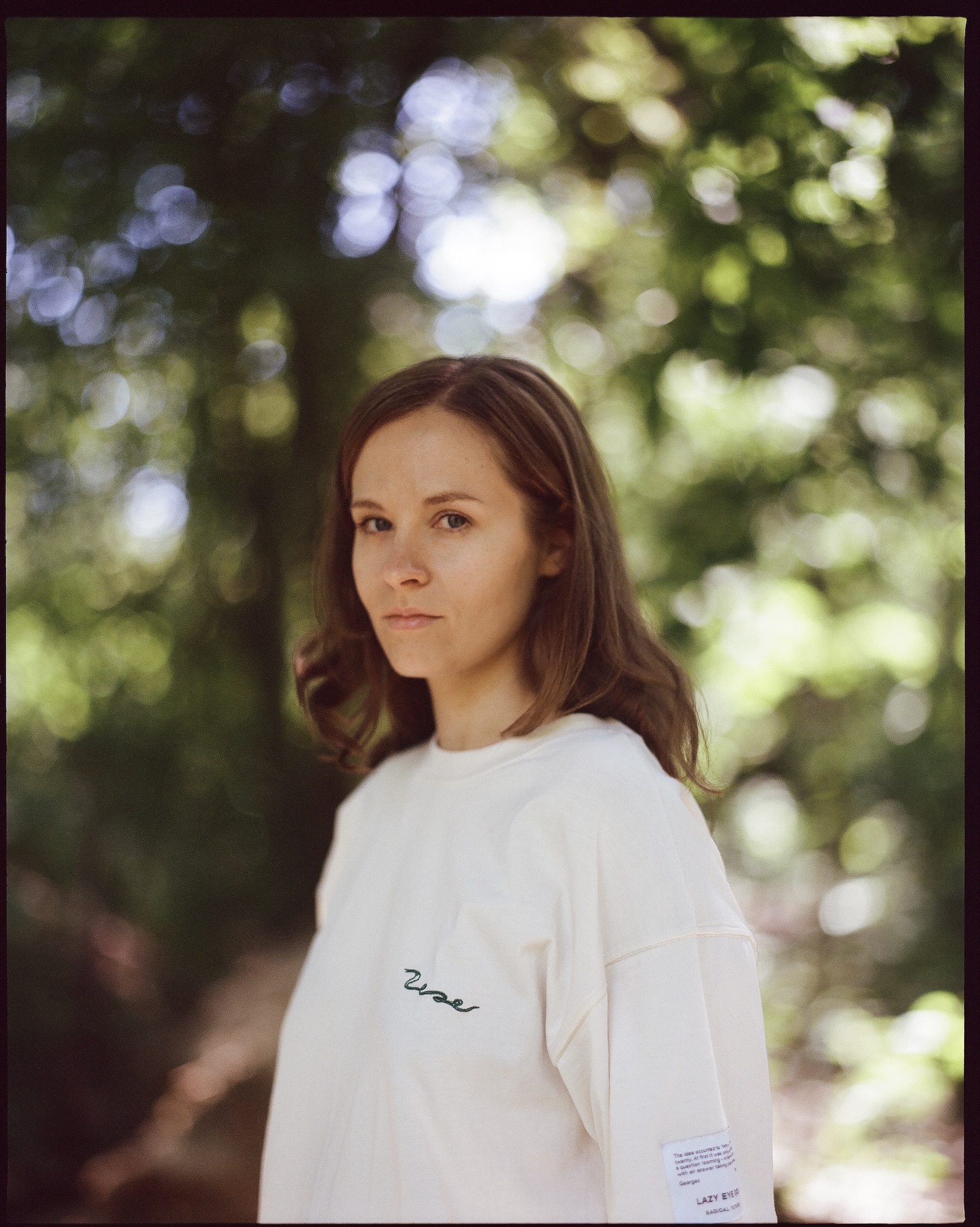

Hania Rani
When Hania Rani reintroduced herself this spring with ‘Hello’, the preliminary taster for her then unannounced new album, Ghosts, it most likely startled many who’ve come to love her work. Otherworldly yet upbeat, its mischievous melody, eloquent Rhodes piano, sparkling synths and nimble rhythms offered little indication of the New Classical style with which she is sometimes associated. But then anyone who has seen Rani live in the last two years can testify Rani’s art is constantly evolving, and, just as the album’s title suggests Rani passes repeatedly and gracefully between musical worlds: as composer, singer, songwriter, and producer.
Ghosts then is the sound of an artist finding her own voice, finding new stories to tell and perhaps sharing her music as intended for the first time. It builds on her earlier successes Esja and Home with an expanded yet still minimal setup of piano, keyboards, synths (most importantly her Prophet) and features more of her mysterious, bewitching voice. As the name suggests it’s sometimes eerie, even haunted, these qualities underlined by Icelandic arranger / Hjaltalín member Viktor Orri Árnason (Jóhann Jóhannsson, Hildur Guðnadóttir, Hauschka) and mixing engineer Greg Freeman (Peter Gabriel, Goldfrapp, Portico Quartet). But its spirit is warm, beckoning one into an ambitious double album that unfolds at an exquisite pace, informed by revelatory, exploratory live performances like 2022’s livestream from Paris’ prestigious Les Invalides, which has earned 3.7 million views to date. “I love long albums,” says Rani “and I would love people to listen to this as a concert because it’s actually shaped in this way.”
Ghosts is also an album of collaborations as Rani is joined sometimes by bassist and Moog player Ziemowit Klimek, who also appeared on Home. Patrick Watson breathes unearthly life into the ethereal ‘Dancing with Ghosts’ and Portico Quartet’s Duncan Bellamy contributes vital loops to the intricately constructed ‘Don’t Break My Heart’ as well as the poised ‘Thin Line’. ‘Whispering House’, too – written and recorded with her friend, Ólafur Arnalds – casts a peaceful, ineluctable spell, as does the faintly baroque ‘Nostalgia’, while ‘The Boat” conjures up the unfolding ambience of Nils Frahm’s Music For Animals and ‘Komeda’ a love for Pink Floyd. Then there’s the richly textured ‘Moans’ and the elegantly swelling ‘Utrata’, while the quietly dramatic ‘A Day in Never’ boasts sombre yet enchanting A Moon Shaped Pool strings and the largely improvised ‘24.03’ ripples with endlessly refracting synths.”
The lyrics are, partially inspired by a two-month residency in a small studio in Switzerland’s mountains, where Rani was working on a soundtrack – released earlier this year as On Giacometti – for a documentary about Swiss artist Alberto Giacometti. “Where I stayed was once an old sanatorium in an area which used to be very popular, but now there are huge abandoned hotels where the locals say ghosts live. I mean, it’s kind of a local belief system – these ghosts even have names! – but once you’re deep into nature or some abandoned place, your imagination starts working on a different level. Things definitely happened that were maybe a little uncomfortable: glasses breaking and stuff like that.”
Rani grew up in a Catholic country where “a lot of rituals and traditions still go on in the countryside and some people believe that ghosts are people not ready to die.” Her setting encouraged her to investigate such themes further, and turning away from her own life, she began imagining other people’s, using Ghosts’ elusive figures to illustrate her concepts. ‘Dancing with Ghosts’, for example, examines ideas of being absent in one’s own world, and ‘Hello’ addresses the liminal state between wakefulness and sleep, while ‘Utrata’ touches upon the mystical emergence of music itself and ‘A Day in Never’ the nature of time.
“The edge of life and death,” Rani summarizes, “and what actually happens in between: this was what really interested me. Even singing the word ‘death’ was quite a shock. It’s such a weird word to say out loud, and people are afraid of it, which I found extremely interesting. Most of the songs probably still talk about love and things like that, but Ghosts is more me thinking about having to face some kind of end.” If Rani’s debut Esja was about exploiting her principal instrument, and Home saw her take steps towards a fuller expression of her art, Ghosts is where she unites her varied interests on what might even be considered her first ‘real’ album. Drawing upon a fondness for diverse artists like Enya, The Smile, James Blake and Pink Floyd – not to mention her admiration for her guests – and evoking Stina Nordenstam’s delicacy, Keith Jarrett’s flair, Kate Bush’s artistry and Pink Floyd’s probing inclinations, it combines a lifetime’s musical experience in one miraculous, cosmic world. Say hello, then, to something quite unlike anything you’ve ever heard. It’s the sound of HANIA RANI.